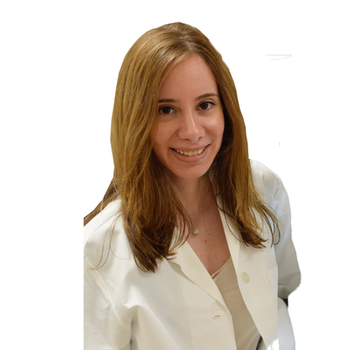The young scholar profile: Beste Mutlu

In every issue of The Bridge, we highlight a young scholar profile from our diaspora. These accomplished and early career individuals demonstrate the potential of next generation Turkish-American scientists and scholars.
1) Would you please tell us about yourself and your journey that led you to become a scholar.
I was born and raised in Istanbul, by loving parents who provided me with every popular science book for children. Understanding how simple laws of nature can explain the world around us sparked my first interest in science. I consider my time at Istanbul High School another turning point – I had a terrific teacher who made biology exciting: so much more than memorizing jargon. We were always encouraged to interpret experimental results and solve the mystery on our own. I realized later on, that this was my first taste of scientific research. Despite loving the subject, however, it didn’t even cross my mind to become a biologist. Little did I know, that one day I would work in the same building as the scientist who did the very experiments we discussed in my high school biology class.
I was not sure what I wanted to do after high school: Study international relations and become a diplomat, or combine engineering with management? So, I declined a scholarship to go to college in Germany and ignored the people who advised me to go to medical school just because I could. Instead, I headed to Sabanci University in Istanbul, where I would be able to take introductory classes first and then declare my major in my sophomore year. To everybody’s surprise, including mine, I decided to study molecular biology and pursue a research career. I’m extremely lucky that I was exposed to different career options. While at Sabanci University, I got involved in collaborative research projects with Harvard Medical School and University of Toronto that focused on efficacy of antifungal drugs. I was also interested in teaching and coordinated a peer tutoring program. After graduating top of my class from the Faculty of Engineering and Natural Sciences, I started my PhD at Harvard University. As an American Association for University Women (AAUW) International Fellow, I’m passionate about mentoring young scientists. It also gives me great joy to write a science column for the Turkish newspaper Habertürk, as my interest in science as a child stems from the popular science books I read.
2) Tell us about your research and how it is related to everyday life or other fields. I’m searching for the answer to a fundamental question in cellular and developmental biology: How do embryonic cells organize their DNA during development?
DNA from a single cell is roughly 1.8 meters long and packaged heavily to fit into the ~6 µm nucleus. The complete set of DNA found in the nucleus of every cell is like a library. Your library must be organized if you ever want to find a book easily. Similarly, DNA organization is crucial for cells to activate the right gene at the right time. Failing to do so can lead to a variety of diseases including cancer.
Embryogenesis is an extremely dynamic process that requires gene regulation: A single cell proliferates and produces a functional organism with diverse cell types. Each embryonic cell must adapt its genetic program as the embryo develops and eventually commit to becoming a specialized cell such as a neuron or a skin cell. For that purpose, embryonic cells undergo large-scale DNA re-organization during development. Throughout my studies, I discovered two new genes that re-organize DNA during embryogenesis and elucidated how they function on a molecular level. One of these genes is implicated in Poly Cystic Ovary Syndrome and could have roles beyond embryogenesis.
3) What do you consider important to your success? Tell us about any skills or habits that you think helped you to become a successful scholar at such a young age.
I value hard work and discipline, but most importantly efficient time management. I focus on the task at hand, without distractions. I’m results oriented, but while I come up with specific plans to achieve my goals, I also try to enjoy the journey.
4) What are your immediate and long-term goals for the future?
My goal is to combine research, science writing and mentorship. I would like to continue investigating basic molecular and cellular biology of genes important for human physiology and disease, whether it be in an academic or pharmaceutical setting.
5) What do you recommend to aspiring scholars, or to young Turkish scientists/scholars who are at the beginning of their careers?
You’ll always have very important decisions to make about your career. Make sure your decision-making process does not solely rely on the prestige associated with the choice. Listen to the advice of people around you closely, but don’t make decisions that will make other people happy. Pursue your own interests, develop your own point of view.
6) Could you please tell us about your life outside of your work? Do you have hobbies? What are your favorite activities? If you recommend a book, what would that be and why?
I practice restorative yoga every day. I’ve played the piano since I was a kid and recording songs on my synthesizer is a great outlet for me on the rare occasions I have time. My most recent musical attempt is to learn to play the ukulele. Above all, my favorite thing is to spend quality time with my husband and family.
I found the book “Women Scientists in America: Struggles and Strategies to 1940” by Margaret W. Rossitier illuminating. It made me appreciate that the work of women who lived ~100 years ago allow me to pursue a career in science today. It’s a great reminder that we should do what’s in our power to fix the inequalities our society faces, for the next generation.